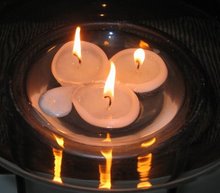Stepping Out
As we get older our steps get shorter. My sister, an occupational health nurse, told me this years ago. She had found it in some research she was doing. After that I took a deeper interest in how my students moved, especially the young men and women I was training in movement at drama schools. I noticed that their strides reflected what was going on for them, how their way of walking changed when they were worrying, were not focused. How they carried a lot of tensions in their upper bodies when distracted. I noticed how their strides became fluid and almost dance-like movements when they relaxed, lowered their centre of gravity from their shoulders and jaws into their bellies and softened their muscles. How this softening went further when noticing when they were holding their breath and allowed a more fluid easy way of breathing to arise. Most of all their strides became confident and fluid when they made a heart connection to their actions and intentions. Ease arose, their way of walking became freer, their strides longer. They could step out confidently.
It set me thinking about fear, worry and limiting our possibilities. Is that shortening of the stride physical or to do with how fear and worry increases as we age? Sometimes as we get older, our worlds can shrink. This is the ground of insurance companies profits. Something may happen. I have to take care. I had better insure against that, or this, or the other. So the shortening of our steps might not be physical. It could be due to habitual thinking and endless worrying and planning, the rehearsing constantly a fear of what might happen.
Last night at our beginners' T'ai-Chi class Chris talked about the difficulty the beginners were having when first meeting Single Whip and the large, deep step that this posture seeks. He reflected on the inability of most of the beginners to take a large step. We talked about this over our tea. Maybe taking a large step is a psychological process, not just physical act. As we soften and relax, then something else becomes possible. The attentive teacher understands that when a posture is not grasped when first introduced that this is not just to with physical ability or memory. The form gradually, subtly and invisibly opens up the practitioner to habits that have become ingrained over years. Unconsciously. We just don't notice these habits, they have become 'us'. The teacher softens, sinks, relaxes, supports - and twinkles. My teacher John Kells said that the most important aspect of T'ai-Chi is the twinkle in the eye. This twinkling can only be there if the heart is open, and the heart opens when we soften, sink and breathe. Gradually the form releases a heart opening confidence. Then we can stride fludily out into the rest of our life.
Breathe in peace, Breathe out a smile. Twinkle, twinkle little star.


0 Comments:
Post a Comment
<< Home